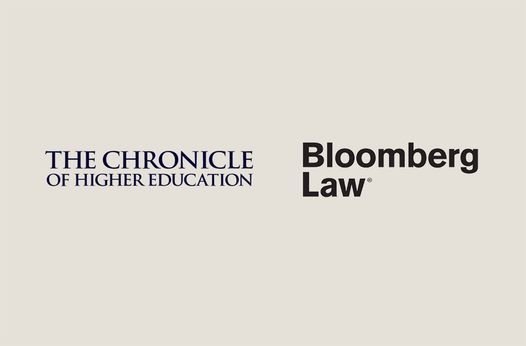Employment Practices Newsletter - December 2014 Edition
Hinshaw Newsletter | 10+ min read
Dec 1, 2014
- Oral Agreement to Pay Commissions Not Barred by Statute of Frauds
- Employee's Failure to Show Hours Worked Proves Fatal to Misclassification Claim
- Disclosure of Whistleblower Identity Is Retaliation Under Sarbanes-Oxley
- Ninth Circuit Dismisses FLSA Collective Action for Lack of Specificity in Pleading
- Court Denies EEOC's Broad Subpoena Requests
- First Circuit Analyzes Whether Employees' Fluctuating Pay Meets FLSA's Salary Test
- Job Applicant Cannot Claim Retaliation under FCA for Prior Whistleblowing Activities
- Sovereign Immunity Shields Hospital Supervisors from Suit
- Assessing the Impact of President Obama's Immigration Actions on Employees and Employers
Oral Agreement to Pay Commissions Not Barred by Statute of Frauds
A group of delivery drivers alleged that their employer promised it would pay the drivers a fee for each delivery completed instead of an hourly wage. To obtain delivery assignments from the company, the company mandated that the drivers sign franchising agreements. The franchising agreements required the drivers to pay a subscription fee of $15,000 in addition to a series of other payments. While not set forth in the franchising agreements, the drivers claimed that the company orally promised to pay them a 60% commission for each delivery. When they did not receive the wages to which they believed they were entitled, the drivers filed suit claiming violations of the Fair Labor Standards Act, New York Labor Law, and the Franchise Sales Act (FSA) and also for breach of contract. The employer prevailed on summary judgment because the district court held that oral commission could not be completed within one year, thus violating the Statute of Frauds. At trial, eight drivers prevailed on their FSA claim. Each side appealed. The U.S. Court of Appeals for the Second Circuit held that the Statute of Frauds does not void an oral agreement to pay commissions unless such an agreement is incapable of being completed within one year. The court explained that "oral employment agreements lacking a fixed duration are not covered by the statute of frauds" because they create an at-will relationship which is "terminable at any time by either party." As such, the court found the company's oral contracts with the drivers to be capable of completion within one year which, as a matter of law, falls outside the purview of the Statute of Frauds. Employers should consider this decision when entering into oral agreements with employees, and consider whether written agreements would better protect the employer's interests.
Kroshnyi v. U.S. Pack Courier Servs., Inc., No. 11-2789 (2d Cir. November 4, 2014)
Contact for more information: Your Hinshaw attorney.
Employee's Failure to Show Hours Worked Proves Fatal to Misclassification Claim
Greg Holaway was a Field Service Engineer for Stratasys, Inc. and was classified as exempt from overtime pursuant to the Fair Labor Standards Act (FLSA). Holaway emailed other Field Service Engineers to complain about working over 40 hours per week without receiving overtime pay. He was terminated shortly thereafter for violating the company's online communications policy. He then filed a collective action alleging violations of the FLSA. The employer successfully moved for summary judgment, and Holaway appealed. The U.S. Court of Appeals for the Eighth Circuit affirmed, finding that Holaway failed to put forth evidence sufficient to demonstrate he worked more than 40 hours per week. Holaway made contradictory assertions and conclusions regarding overtime worked, and failed to specifically account for the hours allegedly worked. The court also found that Holaway failed to provide a meaningful explanation of how he arrived at his work hour estimations. The court stated that it was reasonable to require that the employee put forth some evidence of the amount and extent of his work in excess of 40 hours per week, or provide some explanation of how he arrived at his time estimates. Though the employer did not keep precise records of the exempt employee's hours, the employee's vague testimony and lack of information helped the employer succeed in its defense.
Holaway v. Stratasys, Inc., No. 14-1146 (8th Cir. November 6, 2014)
Contact for more information: your Hinshaw attorney.
Disclosure of Whistleblower Identity Is Retaliation Under Sarbanes-Oxley
Anthony Mendez, formerly employed as Halliburton's Director of Technical Accounting Research and Training, filed a confidential complaint with the Securities and Exchange Commission (SEC) alleging the company engaged in questionable revenue recognition practices. The company's general counsel received a notice from the SEC and, after concluding that Mendez must have made the complaint, wrote an email to Mendez's supervisor identifying Mendez as the complainant. The supervisor then forwarded the email to 15 of Mendez's coworkers who began to avoid him and treat him negatively, which led Mendez to resign. Mendez filed a complaint with the Occupational Safety and Health Administration pursuant to § 806 of Sarbanes-Oxley (SOX), claiming that disclosure of his identity constituted unlawful retaliation. The Administrative Review Board agreed and awarded him emotional distress and reputational harm compensatory damages. Halliburton appealed. The U.S. Court of Appeals for the Ninth Circuit affirmed, holding that a materially adverse employment action sufficient to generate liability under SOX is one harmful enough that it may well dissuade a reasonable worker from engaging in whistleblowing. Since Mendez's workplace required collaboration, the court reasoned, it is inevitable such a disclosure would result in ostracism by coworkers. Such a disclosure could also be seen by a reasonable employee as sending a warning and granting implied approval of the coworkers' reactions. This decision demonstrates employers are better served by maintaining confidentiality of the identities of actual or suspected whistleblowers and continuing to treat whistleblowers the same unless divergent treatment is truly required by a genuine business or safety need.
Halliburton, Inc. v. Administrative Review Board, No. 13-60323 (5th Cir. November 12, 2014)
Contact for more information: your Hinshaw attorney
Ninth Circuit Dismisses FLSA Collective Action for Lack of Specificity in Pleading
Landers was a cable services installer for Quality Communications, Inc. in Nevada. He filed a class action lawsuit alleging that Quality failed to pay him, and other similarly situated individuals, minimum wages and overtime wages in violation of the Fair Labor Standards Act (FLSA). Specifically, Landers claimed he was not paid the minimum wage, and that he was subjected to a "piecework no overtime" wage system. Quality's motion to dismiss the complaint for failure to state a claim was granted by the district court and Landers appealed. The U.S. Court of Appeals for the Ninth Circuit noted that this case presented an issue of first impression as the degree of specificity required to state a claim for failure to pay minimum wages or overtime wages under the FLSA had not been previously addressed. The court determined that a plaintiff asserting an FLSA claim for overtime payments must allege that he worked more than 40 hours in a given workweek without being compensated for the overtime hours worked during that workweek. The standard may be satisfied by estimating the length of the average workweek during the applicable period and the average rate at which the employee was paid, the amount of overtime wages believed to be owed, or any other facts that will permit the court to find plausibility. Dismissal was proper here as notably absent from the allegations in Landers's complaint was any detail regarding a specific workweek when Landers worked in excess of forty hours and was not paid overtime for that specific workweek and/or was not paid minimum wages. This decision raises the bar for bringing FLSA wage and hour claims in the Ninth Circuit as it is no longer sufficient for the employee to simply allege that an employer failed to pay required overtime and minimum wage compensation to survive a motion to dismiss.
Landers v. Quality Communications, Inc., No. 12-15890 (9th Cir. November 12, 2014)
Contact for more information: David I. Dalby.
Court Denies EEOC's Broad Subpoena Requests
Argentinean national Jose Morabito was employed by Royal Caribbean as an assistant waiter. He filed a charge of discrimination with the U.S. Equal Employment Opportunity Commission (EEOC), claiming that Royal Caribbean violated the Americans with Disabilities Act (ADA) when it failed to renew his employment contract after he was diagnosed with a medical condition. Royal Caribbean claimed the ADA was not applicable because Morabito was a foreign national who was employed on a ship flying the flag of the Bahamas, and that it was required to follow the Bahamas Maritime Authority medical standards for seafarers, which disqualified Morabito from duty. The EEOC issued an administrative subpoena that requested, among other things, a list of all employees who were discharged or whose contracts were not renewed due to a medical reason and a list of all persons who applied for a position within the relevant period but who were not hired due to a medical reason. Royal Caribbean complied in part by providing records for employees and applicants who were United States citizens, but objected to information relating to any foreign nationals, arguing that because the ADA did not cover foreign nationals, any such information would be irrelevant. The EEOC moved to compel compliance with the subpoena, and the district court denied the request. The EEOC appealed. The U.S. Court of Appeals for the Eleventh Circuit affirmed, finding that while statistical data is relevant in some situations, this was not one of them. The court held that "[t]he relevance necessary to support a subpoena for the investigation of an individual charge is relevance to the contested issues that must be decided to resolve the charge, not relevance to issues that may be contested when and if future charges are brought by others." Employers should take note of this decision, particularly when having to address similarly overly broad requests from the EEOC.
Contact for more information: Andrew M. Gordon.
First Circuit Analyzes Whether Employees' Fluctuating Pay Meets FLSA's Salary Test
Two project managers for Saint Consulting each earned well over $100,000 per year, which was based upon the number of hours they billed to clients, though there was a guaranteed minimum of $1,000 per week. The project managers filed suit claiming that they were deprived of overtime compensation in violation of the Fair Labor Standards Act because they claimed the $1,000 "stipend" did not meet the salary basis test that an exempt employee be paid at least $455 per week. Specifically, though the project managers agreed that they were paid a predetermined amount which constituted all or part of their compensation, they claimed the amount was subject to reduction due to variations in the quality or quantity of work performed. Both the trial court and the U.S. Court of Appeals for the First Circuit rejected the project managers' arguments, finding that there was no evidence that the employer had an actual practice of reducing the "stipend" such that the project manager earned less than $1,000 per week. The court also found that just because the project managers were usually paid more than the minimum guarantee did not mean that the guarantee was not "part of the employee's compensation," and there was no reason to express the pay in a more complex formula when the project managers always received the requisite pay. The Court concluded that the stipend constituted pay that was "predetermined" and "not subject to reduction because of variations in the quality or quantity of the work performed," and consequently qualified as a payment on a "salary basis," which meant that the project managers were exempt as highly compensated employees under the FLSA. Employers with exempt employees should be mindful of the minimum salary requirements and any deductions made thereto in order to ensure that the exemption is not lost.
Litz v. The Saint Consulting Group, No. 13-2437 (1st Cir. November 4, 2014)
Job Applicant Cannot Claim Retaliation under FCA for Prior Whistleblowing Activities
Gary Vander Boegh, a landfill manager for the U.S. Department of Energy, reported environmental violations that occurred at his plant. When Vander Boegh's employer lost its contract to provide waste management services for the plant, Vander Boegh applied at EnergySolutions, Inc., which had taken over the waste management contract, in the hopes that he would continue his job as landfill manager at the plant, but he did not get the job. Vander Boegh brought suit under the anti-retaliation provisions of the False Claims Act (FCA) claiming he was refused employment because of his prior whistleblowing activities. The district court dismissed the complaint and Vander Boegh appealed. The U.S. Court of Appeals for the Sixth Circuit affirmed, finding that the anti-retaliation provisions of the FCA did not apply to Vander Boegh because he was an "applicant" and not an "employee" of EnergySolutions. Vander Boegh did not fall within the plain or common meaning of the term "employee," and Vander Boegh did not receive compensation from EnergySolutions and was not under the company's control. Employers should always take caution when using such information to decline employment or to take an adverse employment action against a current employee. Employers should consult with counsel before taking such action.
Vander Boegh v. EnergySolutions, Inc., No. 14-5047 (6th Cir. November 18, 2014)
Contact for more information: Your Hinshaw attorney.
Sovereign Immunity Shields Hospital Supervisors from Suit
A registered nurse at a state-operated hospital claimed that she regularly started work before her scheduled shift and often stayed after, for transitional purposes. She complained that she was not paid for this time, but a supervisor told her that the extra time worked was due to her own inefficiency. She filed suit against two supervisors, claiming that they refused to authorize overtime pay for the time she worked over 40 hours in a week. The supervisors moved to dismiss the complaint, arguing that the conduct alleged involved their official duties while employed by the hospital and that thus, the complaint was actually directed against the hospital which has sovereign immunity. They argued that the nurse could not circumvent the Eleventh Amendment to the U.S. Constitution by naming them as individual defendants when she was really seeking to hold the hospital responsible. The district court denied the motion and the supervisors appealed. The U.S. Court of Appeals for the Fourth Circuit reversed, finding that the supervisors' actions were inextricably tied to their official job duties, and thus, the state was the real party in interest. There were no allegations that the supervisors were acting in such a manner to serve their own personal interests or that their interests were not aligned with that of the hospital. Since the Eleventh Amendment provides the state with immunity, the supervisors were also immune, and thus, the court found that the action should be dismissed. Sovereign immunity can provide state employers and their agents with a defense to liability.
Martin v. Wood, No. 13-2283 (4th Cir. November 18, 2014).
Assessing the Impact of President Obama's Immigration Actions on Employees and Employers
President Obama recently outlined his plans for Presidential action relating to U.S. immigration system reform. The action will provide legal work authorization and international travel authorization for millions of people who are currently undocumented and/or working without authorization in the U.S. Though there currently is no process or procedure in existence, procedural details are expected to be published within the next several weeks. Benefits are expected to be available for affected individuals within 90 to 180 days, depending upon classification. In the meantime, employers should be prepared. One of the anticipated immediate results is that existing undocumented workers may openly reveal their status, thereby prompting Form I-9 re-verification and related issues. Overall, the program is expected to significantly impact employees and employers alike, and affected employers should be prepared with internal policy decisions regarding these proposed adjustments in the workplace.
Assessing the Impact of President Obama's Immigration Actions on Employees and Employers
Contact for more information: Your Hinshaw attorney.
This newsletter has been prepared by Hinshaw & Culbertson LLP to provide information on recent legal developments of interest to our readers. It is not intended to provide legal advice for a specific situation or to create an attorney-client relationship.
Featured Insights

Employment Law Observer
Dec 8, 2025
12 Days of California Labor and Employment: 2025 Year in Review

Press Release
Dec 4, 2025
Hinshaw Recognized by the Leadership Council for Legal Diversity as a 2025 Top Performer

Press Release
Nov 25, 2025
Hinshaw Legal Team Secures Summary Judgment in Gas Station Injury Case

Press Release
Nov 18, 2025
Hinshaw Releases the Third Edition of Duty to Defend: A Fifty-State Survey

In The News
Nov 13, 2025
A Profile on Neil Rollnick: After 57 Years in Practice, He Has No Plans to Retire

Press Release
Oct 22, 2025
Hinshaw & Culbertson LLP Launches New Website and Refreshed Brand








